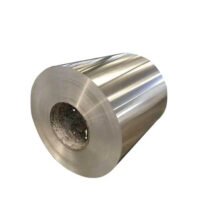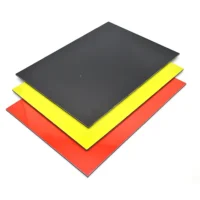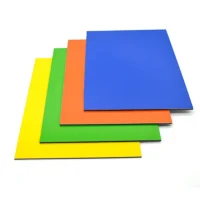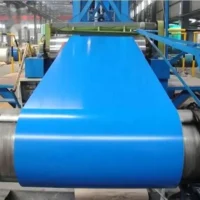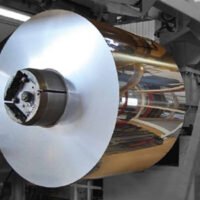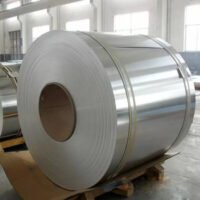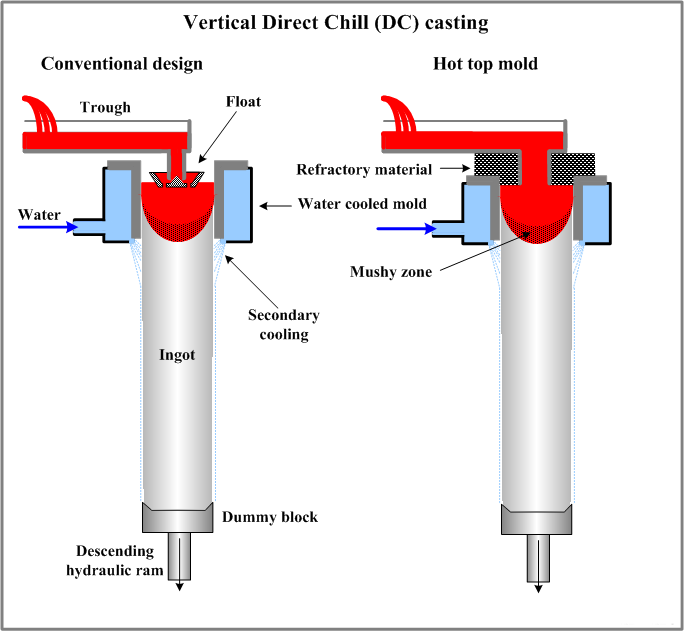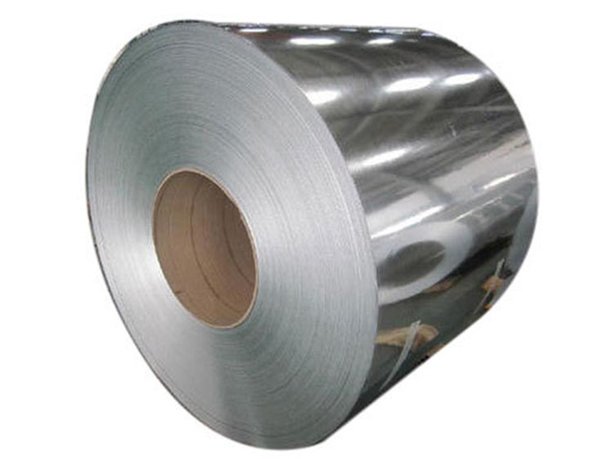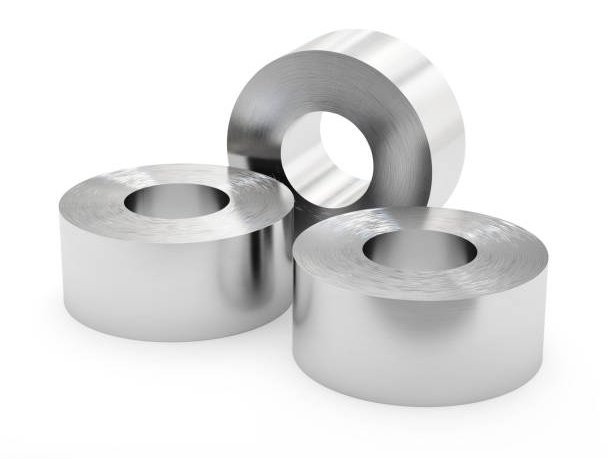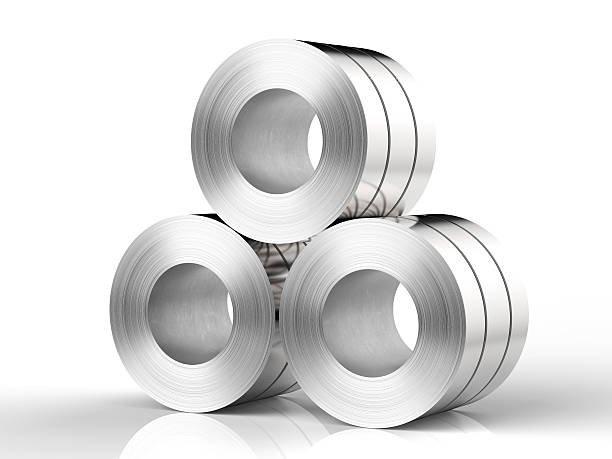1050 Aluminum Coil
1050 Aluminum Coil
Application Market: printing plates, road signs, aluminum-plastic panels, Lamps, Shell Materials, Battery explosion-proof valves, etc.
| Width: 40-2650mm | ||
| Thickness: 0.2-5mm | ||
| Length: Customizable | ||
| Mother Coil: DC or CC | ||
| Temper: O, H14, H18, H22, H24, H26, H28, etc. | ||
| Surface: Mill Finishing, Mirror Finishing, Checkered | ||
| Free Sample Size: A4 Paper Size | ||
| MOQ: 3T | ||
| Payment Terms: T/T, L/C, D/P | ||
| Delivery Time: Normally Within 15-30Days |
An aluminum coil is a rolled metal product calendered by a finishing mill and processed by drawing and bending angles without smooth flying shear. It is the raw material of aluminum strips and plates. The slitting equipment can cut the aluminum roll into strips, and the flattening equipment can make the aluminum roll into a sheet.
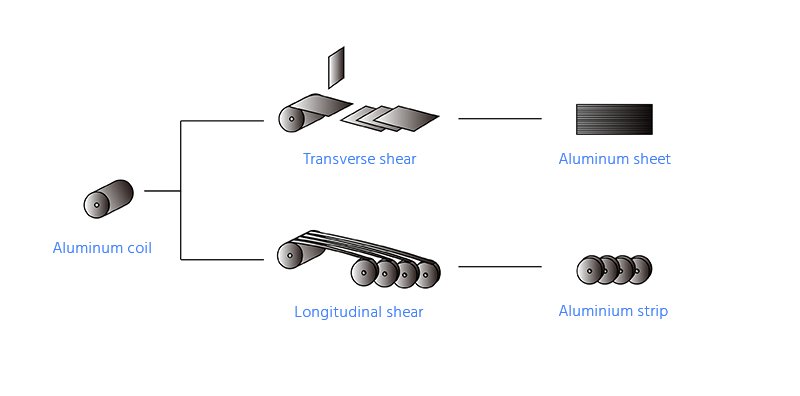
1050 Aluminum Coil DC / CC International Alloy designation (For Reference)
The parameters of the normal 1050 aluminum coil and pre-painted 1050 aluminum coil are identical to those of the International Alloy Designations System for 1050 Aluminum sheets.
| Alloy Series | National Standard | American Standard | Europe Standard |
|---|---|---|---|
| 1000 Series | 1050 Aluminum Coil | 1050 Aluminum Coil | – |
| 1050 Aluminum Coil Dimension Property | Value |
|---|---|
| Length | Customizable |
| Width | 100mm-2650mm |
| Thickness | 0.1mm-10mm |
1050 alloy aluminum coil refers to a specific grade of aluminum alloy coil, also known as 1050 aluminum coil. 1050 aluminum coils are commercial pure aluminum extrusions in the 1000 series. According to the international alloy nomenclature, the last two digits of the 1050 aluminum coil “50” means that the aluminum content must be above 99.50%. Only when this condition is met can the product be qualified. At the same time, the 1050 aluminum coil is also a non-heat-treated aluminum alloy with low strength, so the 1050 aluminum coil cannot be strengthened by heat treatment.
1050 alloy has a high aluminum content, a soft texture, and low mechanical strength. It is easy to withstand various pressure processing, stretching, and bending. It can fully meet conventional processing requirements (stamping, stretching) with good elongation and tensile strength. Therefore, 1050 alloy has excellent flexibility and plasticity. The 1050 aluminum coil is made by extrusion or rolling.
Secondly, the density of the 1050 aluminum coil is low, the surface has a silver-white luster, and its density decreases with increased purity or temperature. The chemical composition and mechanical properties of the 1050 aluminum coil are similar to those of the 1060 aluminum coil, with advantages such as corrosion resistance, high plasticity, and excellent reflectivity. It is especially suitable for corrosion resistance, and formability requirements are high, but the strength requirements are not high. Therefore, 1050 aluminum coils are widely used in chemical, electrical, packaging, decoration, and other industries. Therefore, in lighting lamps, lampshades, lamp holders, reflectors, decorations, chemical containers, and other products, 1050 aluminum coil is the ideal base material. In addition, it is also used in the interior design of supporting structures such as buildings and exterior walls of inner rooms.
Components of 1050 Aluminum Coil
| Chemical composition | Content(%) |
|---|---|
| Si | ≤0.25 |
| Cu | ≤0.05 |
| Mg | ≤0.05 |
| Zn | ≤0.05 |
| Mn | ≤0.05 |
| Ti | ≤0.03 |
| V | ≤0.05 |
| Fe | ≤0.40 |
| Al | ≥99.50 |
Our Wantai 1050 aluminum coils are cold and hot rolled and available in various Tempers (O, H12, H14, and H18 hardness), thicknesses, and sizes. In addition to the standard aluminum element, the 1050 aluminum coil adds trace copper and iron elements. Therefore, the 1050 aluminum coil has high electrical and thermal conductivity and can accept gas welding, brazing, and contact welding. The 1050 aluminum coil provides the best calibration resistance compared to any other alloy series. The same is true for 1060 aluminum coils and 1100 aluminum coils. Therefore, aluminum coil 1050 is also used by manufacturers of heat sinks because it has higher thermal conductivity than other alloys.
1050 Aluminum Coil DC / CC Temper designation (For Reference)
| Temper | Definition |
|---|---|
| O | Annealed |
| H12 | Strain Hardened, 1/4 Hard |
| H14 | Strain Hardened, 1/2 Hard |
| H16 | Strain Hardened, 3/4 Hard |
| H18 | Strain Hardened, Full Hard |
| H22 | Strain Hardened and Partially Annealed, 1/4 Hard |
| H24 | Strain Hardened and Partially Annealed, 1/2 Hard |
| H26 | Strain Hardened and Partially Annealed, 3/4 Hard |
| H28 | Strain Hardened and Partially Annealed, Full Hard |
Differences between DC Casting and CC Casting
The thickness of 0.7 mm refers to the thickness of aluminum coils, commonly used in various industries for roofing, cladding, and fabrication applications. So, comparing the quality of aluminum coils with a 0.7 mm thickness through some details on DC and CC Casting could help us get a clear and reasonable result.
DC (Direct Chill) Casting:
- The direct chill casting process produces a magnificent and uniform aluminum grain structure.
- Compared to other casting methods, this fine-grain structure gives aluminum strength, formability, and corrosion resistance.
- Direct chill-casting aluminum coils are often used in applications that require deep drawing or complex forming, such as automotive body panels, heat exchangers, and food/beverage cans.
- The 0.7 mm thickness is on the thinner end for DC casting aluminum. However, this gauge is still suitable for many formed and fabricated components.
CC casting (Continuous Casting):
- Continuous Casting is a more economical process than DC casting.
- CC-casting aluminum billets, blooms, or slabs have a slightly larger grain structure than DC-casting. However, it is still suitable for a wide range of applications.
- CC-casting aluminum coils with a thickness of 0.7 mm are commonly used for general sheet metal fabrication, roofing, siding, and other building/construction applications.
- The 0.7 mm thickness provides a good balance of formability, strength, and lightweight properties for these types of uses.
In summary, DC-casting aluminum coils have superior mechanical properties and surface quality compared to CC-casting but at a slightly higher cost. Even so, neither DC nor CC-casting aluminum coils with a thickness of 0.7 mm can exhibit good flatness, surface quality, and dimensional tolerance and can be used in different applications depending on the project’s specific requirements. The choice between the two kinds of production technology depends on the end product’s specific performance requirements, economic considerations for the specific application, and customer requirements. DC casting is preferred when superior formability and strength are needed. In contrast, CC casting is more economical for less demanding applications.
Advanced Color-Coated Process
Polyester-coated pre-coating Technology(PE Coating)
The polyester coating is a kind of anti-UV UV polyester resin coating; its main component uses polymers containing ester bonds in the main chain as monomers, adding alkyd resin and an ultraviolet absorber. After baking polyester coating on the surface of aluminum (aluminum sheet, aluminum coil) many times, it forms a solid film with protection and decoration. The polyester coating protects color-coated aluminum products (aluminum sheets, aluminum coils) from exposure to the atmosphere due to temperature differences, freeze-thaw cycles, corrosive gases and microorganisms, ultraviolet radiation, wind, rain, frost, and snow.
In addition, the polyester coating can give color-coated aluminum substrate products rich color. According to gloss, the polyester coating can be divided into matte and highlight series. Therefore, the color-coated aluminum coil not only has good gloss and smoothness but also superior texture and feel and can also increase the sense of layer and three-dimensionality. It is especially suitable for interior decoration and advertising boards.
polyvinylidene difluoride coating technology(PVDF Coating)
Fluorocarbon coating is PVDF resin. It mainly refers to vinylidene fluoride homopolymer or vinylidene fluoride and other small amounts of fluorinated vinyl monomer copolymer coatings. The fluoric acid-base material with a fluorine/carbonization bond has a stable and firm chemical structure, which makes the physical properties of fluorocarbon coatings different from those of general coatings.
Fluorocarbon coatings can be divided into traditional fluorocarbon coatings and nano-fluorocarbon coatings according to the film formation structure of the surface. In 1965, the Pennwalt Chemical Company of the United States, for the first time, used fluorocarbon paint for the coating of indoor and outdoor aluminum in high-grade buildings, a wide range of color selectivity, solemn appearance, and durability for many magnificent curtain wall buildings around the world added luster. In addition to the wear and impact resistance in terms of mechanical properties, it also shows excellent and long-term fading resistance and UV resistance in harsh climates and humid environments. After high-temperature grilling, the molecular structure of the coating is tight, and the machine has superior weather resistance. The coating manufacturer’s guarantee of the service life of the coating began to be 10 years, 15 years to guarantee more than 20 years.
American research institutions have tested and compared fluorocarbon, super, and general coatings. The samples of the coatings were exposed to hot sunlight in Florida, the United States, and exposed to the harsh environment of humid salty air for 12 years, which proves that the stability and durability of fluorocarbon coatings are 30%-80% higher than those of the other two coatings. Fluorocarbon coatings ensure that they can be used in various harsh environments. It is especially suitable for indoor and outdoor decoration in public places, commercial chains, exhibition advertising, and other decorations and displays.
Due to the simple production process of 1000 series alloy coils, such as 1050 aluminum coils, 1060 aluminum coils, and 1100 aluminum coils, the process is relatively single, and the technology is quite mature. So, 1050 aluminum coil price is cheaper. It also means that the highly economical 1000 series pure aluminum is currently one of the most commonly used series in conventional industry and is ideal for large-scale applications in industrial manufacturing. If you need more specific information about 1050 aluminum coils, don’t hesitate to contact 1050 aluminum coil manufacturer and supplier!
Physical Characteristics of 1050 Aluminum Alloy
| Physical Property | Value |
|---|---|
| Density | 2.71g/cm3 |
| Hardness Brinell | 20-30HB |
| Melting Point | 650°C |
| Thermal Expansion | 24 x10^-6 /°C |
| Thermal Conductivity | 237W/m.K |
| Electrical Resistivity | 0.0282 x10^-6 Ω.m |
| Mechanical Property | Value |
|---|---|
| Tensile Strength | 60 – 125 MPa |
| Compressive Strength | ≥115MPa |
| Yield Strength | 20-115 MPa |
| Elasticity Modulus | ≥70Gpa |
| Elongation | ≥20% |
| Elongation at Break | ≥2.3% |
1050 aluminum coil Corrosion resistance
1050 aluminum coil chemical properties are very active. At 20℃, its standard potential is -1.69V, which makes it easy to form a firm and tight oxide film by the action of oxygen in the air, and the standard point is raised to -0.5V. So, aluminum is resistant to corrosion in the atmosphere. However, with the increase of impurities, the continuity of the oxide film is destroyed to form a micro battery, reducing its corrosion resistance.
The corrosion resistance of the 1050 aluminum coil in pure water mainly depends on the water temperature, water quality, and aluminum purity. When the water temperature is lower than 50℃, with the improvement of water quality and aluminum purity, the corrosion resistance of the 1050 aluminum coil is improved, and the corrosion appearance is mainly spot-like. If the water contains a small quantity of active ions (Cl-, Cu+, etc.), the corrosion resistance of aluminum is sharply reduced.
The corrosion resistance of 1050 aluminum coil in acid and alkali is roughly as follows
| Medium | Anti-corrosion Capability |
|---|---|
| Ocean Water | weak |
| Salt | weak |
| Organic Acid | Common |
| fluorine, chlorine, bromine, Lodine | Poor |
| hydrochloric acid, hydrofluoric acid, acetic acid | Poor |
| alkaline, ammonia water, Lime water | Poor |
| dilute sulfuric acid, dilute nitric acid | Poor |
| ammonia Gas, sulfurous gas | Good |
| Cold concentrated sulfuric acid, Cold concentrated nitric acid | Stable |
| petroleum, kerosene, ethyl alcohol, benzene, organic compound, etc | Stable |
1050 aluminum coil annealing process
1050 aluminum coil Features
- A high degree of purity: The 1050 aluminum coil is industrial pure aluminum, and its aluminum content exceeds 99.50%. So, the texture is relatively soft.
- Lightweight: 1050 aluminum alloy has a low density of about 2.7g/cm³, which is 1/3 of steel, so it has important application value in many fields.
- Machinability: Because 1050 aluminum alloy has a soft texture, good plasticity, and machinability, the 1050 aluminum coil can be manufactured by die casting, extrusion, forging, and other processes. But, in the machinery process, it is easy to produce bending, deformation, and other problems. Therefore, it is necessary to anneal before processing to improve its plasticity and processing properties.
- Good conductivity: Aluminum has good electrical conductivity, and 1050 aluminum alloy is widely used as a conductive material in wires and cables.
- Good thermal conductivity: 1050 aluminum alloy has good thermal conductivity and is suitable for manufacturing equipment with high heat conduction requirements such as radiators and heat exchangers.
- Corrosion resistance: 1050 aluminum alloy has good corrosion resistance, especially in the atmosphere and many chemical media.
1050 aluminum coil annealing process
The annealing process of the 1050 aluminum coil generally includes two steps: preheating and annealing. Preheating is to homogenize the temperature inside the aluminum coil to prevent deformation during the annealing process. Annealing is to improve the plasticity and processing properties of aluminum coils. In the annealing process, it is necessary to control the temperature and time to ensure the annealing effect. The specific process flow is as follows:
Aluminum Coil preheating
To ensure temperature homogenization, the 1050 aluminum coils must be heated to an appropriate temperature during the preheating phase. Under normal circumstances, the preheating temperature is about 200℃, and the preheating time is 30 minutes.
Aluminum coil annealing
In the annealing phase, the 1050 aluminum coils must be heated to another appropriate temperature to improve their plasticity and processability. Generally speaking, the annealing temperature is about 370℃, and the annealing time is 2-3 hours. The aluminum coil needs to be placed in the annealing furnace to control the furnace temperature and the position of the coil material to ensure uniform temperature.
Aluminum coil cooling
After the annealing is completed, the aluminum coil needs to be removed and placed in a ventilated place for natural cooling. The cooling time needs to be determined according to the thickness and size of the 1050 aluminum coil. Please note that during the cooling process, care should be taken to prevent the surface of the aluminum coil from being damaged.
Aluminum coil surface treatment
After the aluminum coil is cooled, its surface must be treated to ensure its surface finish and product quality. Specific treatment methods include grinding, polishing, and so on.
Aluminum coil quality testing
After the annealing and cooling of the aluminum coil, it is also necessary to conduct a quality detection to ensure that its quality meets the requirements. The content of quality inspection includes appearance, size, mechanical properties, and so on.
Aluminum coil packaging
After the process above is completed, the aluminum coils need packaging to ensure they are not damaged during transportation. Packaging materials must choose good quality, moisture-proof, and shock-proof materials to ensure the integrity of the aluminum coil.
In summary, the annealing process of the 1050 aluminum coil includes preheating, annealing, cooling, surface treatment, quality inspection, packaging, and other links. The parameters and requirements of each link must be controlled to ensure the annealing effect and product quality.
The Application of 1050 Aluminum Coil(Prepainted Aluminum Coil)
In the broad field of materials science, 1050 aluminum coil has become one of the indispensable key materials in many industries with its unique properties and wide range of applications. As a pure aluminum extrusion product of the 1000 series, the 1050 aluminum coil has won wide recognition for its high plasticity, excellent corrosion resistance, and good electrical and thermal conductivity.
Printing and Image Plate Making
In printing and image plate making, the WanTai 1050 aluminum coil is ideal for CTP and PS plate making due to its high flatness, smooth surface, and easy machining. 1050 aluminum coil can ensure the high quality of printed matter, improve the efficiency of plate making, and reduce production costs.
According to authoritative statistics, about 80% of the world’s CTP and PS bases use 1050 aluminum coils as raw materials. Using the 1050 aluminum roll plate base increases the image sharpness of the print by 45%, and the color reproduction is more accurate. The print quality is 30% higher than traditional materials, and the plate making efficiency is 35% higher.
Road Signs and Decorative Materials
In the field of road signage and decorative materials, 1050 aluminum rolls also have their own unique advantages. Because of its lightweight, corrosion resistance, and easy processing characteristics, 1050 aluminum rolls are suitable for making road signs, billboards, building curtain walls, and other products. It can be easily cut, bent, and welded into various shapes and sizes while maintaining a beautiful and clear appearance for a long time. At the same time, the 1050 aluminum coil also has good recyclability, meets the environmental requirements, and becomes an important representative of green building materials.
According to the survey, 90% of road signs and billboards are made of 1050 aluminum rolls. Road signs made of 1050 aluminum rolls extend their service life by more than 85% compared to traditional materials. In addition, due to their lightweight, corrosion resistance, and easy processing characteristics, the use of 1050 aluminum coils in decorative materials such as building curtain walls and ceilings has also increased yearly, and the market share has reached 78%.
construction industry
Because of its lightweight, corrosion resistance, anti-aging, and easy processing characteristics, 1050 aluminum coil is widely used in the construction industry to manufacture aluminum doors and Windows and aluminum curtain walls. The color-coated 1050 aluminum not only has a good appearance and decoration but also can effectively resist the erosion of the natural environment, keep it bright as new for a long time, and improve the service life of the building. In the field of thermal insulation material, the thermal conductivity of 1050 aluminum coil, with its excellent performance and good processability, is important for products such as insulation and thermal insulation material. Using 1050 aluminum coils to make the surface or reflection layer of thermal insulation material can improve the thermal insulation effect. Its excellent thermal conductivity and reflection performance can effectively reduce the transfer and loss of heat, and improve the energy-saving performance of the building.
Compared with the experimental data of other thermal insulation materials, the thermal insulation material made of 1050 aluminum coil can effectively improve the thermal insulation effect and reduce energy consumption. According to the authority’s test, the insulation material made of 1050 aluminum coil has an insulation effect that is more than 35% higher than that of traditional materials, and the insulation effect is more significant.
Electrical Circuits and Electronic Components
The 1050 aluminum coil’s role in electrical circuits and electronic components is pivotal. Its unique combination of high electrical conductivity, thermal conductivity, and corrosion resistance sets it apart, making 1050 aluminum alloy a go-to choice in the electronics industry for manufacturing conductive parts.
Electronic components made from 1050 aluminum alloys deliver tangible benefits. They efficiently transmit current, ensuring circuit connection stability and safety. These components also exhibit excellent electrical conductivity, stable performance, and remarkable corrosion and wear resistance, all of which contribute to the reliable operation of electronic equipment. Importantly, the failure rate of electrical components made of 1050 aluminum coils is more than 30% lower than that of traditional materials, a clear testament to their superiority.
Thanks to their excellent conductivity and corrosion resistance, 1050 aluminum coils are extensively used as the industry standard in various electronic equipment. They are ideal for producing electrolytic capacitors, electrode materials, wires, cables, and other products. Authoritative statistics reveal that about 90% of the world’s aluminum wires and cables utilize 1050 aluminum coils as conductor materials, underscoring their widespread and trusted application.
Because the daily work of electronic equipment needs to withstand the impact of high current and high heat, heat dissipation is not just crucial in electronic equipment. It’s essential and must be addressed. 1050 aluminum coil because of its good thermal conductivity and processing properties, often used to manufacture various electronic components of the shell and heat sink. The 1050 aluminum radiator can not only effectively reduce the temperature of the electronic equipment and improve the heat dissipation effect but also improve the stability and service life of the equipment. Therefore, the 1050 aluminum coil is more than just an ideal material. It’s one of the indispensable materials for the electronics industry, playing a crucial role in equipment stability.
chemical industry
The 1050 aluminum alloy is known for its excellent corrosion resistance, which has made it a popular choice for manufacturing oil tanks, chemical containers, and other chemical equipment. Specifically, the 1050 aluminum coils can withstand the erosion caused by specific chemicals, ensuring the equipment’s regular operation and service life in the chemical industry.
The chemical industry stands to gain from the cost-saving properties of 1050 aluminum coils when selecting pipes and pipe fittings. 1050 aluminum coils, with their superior corrosion resistance and ease of installation and maintenance, lead to significant reductions in operating costs for chemical companies. Besides, the 1050 aluminum coils’ versatility allows for the manufacture of various pipes and pipe fittings, such as conveying pipes and heat exchange pipes, further enhancing their economic value. This emphasis on economic benefits instills confidence in the cost-effectiveness of investing in 1050 aluminum coils.
Transportation industry
1050 aluminum alloy also has a wide range of market applications in automotive manufacturing. With the development of lightweight automotive coils, 1050 aluminum coils, such as body panels, doors, roofs, hoods, radiators, and other components, are increasingly widely used in automotive manufacturing. Auto parts made of 1050 aluminum coil have good formability and corrosion resistance and can effectively reduce the car’s weight and improve fuel economy.
In the Marine and Marine Engineering field, 1050 aluminum coils can manufacture some non-load-bearing but require corrosion resistance components, such as hull fenders, offshore platform supports, etc.
The requirements for materials in the aerospace field are very high. Although the 1050 aluminum coil is not preferred because of its low strength, its lightweight, corrosion resistance, and easy processing characteristics still give it a particular application value in some non-load-bearing parts or interior parts. For example, it can make aircraft seats, upholstery, heat insulation panels, and other components.
packaging industry
1050 aluminum coil can be processed by cold rolling into thin aluminum foil, strips, and other aluminum sheet products. Due to its exceptional barrier preservation and corrosion resistance, the 1050 aluminum coil is widely used in food, drugs, cosmetics, and some other product packaging to prevent food from moisture, oxidation, and deterioration. Besides, it can also elevate product quality grade and additional value. Therefore, it is ideal for manufacturing various food-grade packaging materials such as aluminum foil bags and cans.
Moreover, 1050 aluminum coils also offer excellent performance in medicines packaging. It can effectively prevent external air and moisture from moisture and deterioration, ensuring the medicines are dry and pure.
Home Decoration And Furniture Manufacturing
1050 aluminum coil is a popular choice in home decoration and furniture manufacturing. It can be crafted into various components through multiple surface treatments and processing, whether aluminum doors and windows or furniture frames; its lightweight and aesthetic appeal have made it a trusted and widely used material in the industry.
Moreover, 1050 aluminum coils, when cold-rolled into thin aluminum sheets and foils, demonstrate their efficiency in manufacturing components like heat exchangers and condensers. Their high thermal conductivity ensures the equipment can efficiently exchange heat and cool, providing a reliable solution for refrigeration and air conditioning needs.
Having said all of the above, as a typical product of the pure aluminum series, the 1050 aluminum coil has shown strong vitality and broad market prospects in materials science with its unique properties and wide application fields. With the continuous progress of science and technology and the continuous development of the market, 1050 aluminum coils will play a more critical role in the field of material science in the future.
WanTai Aluminum Industry Product List
| Aluminum Alloy Series | Aluminum Grade |
|---|---|
| 1000 Series | 1050, 1060, 1070, 1100, etc. |
| 2000 Series | 2014, 2017, 2024, 2A11, 2A12, 2A14, etc. |
| 3000 Series | 3003, 3004, 3005, 3104, 3105, 3A12, etc. |
| 4000 Series | 4004, 4032, 4043, 4047, 4A03, 4A11, 4A13, 4A17, etc. |
| 5000 Series | 5005, 5052, 5052A, 5052B, 5059, 5083, 5086, 5182, 5252, 5454, 5754, 5A02, 5A03, 5A05, 5A06, 5M49, 5M52, etc. |
| 6000 Series | 6005, 6005A, 6060, 6061, 6063, 6082, 6101, etc. |
| 7000 Series | 7005, 7050, 7075, 7A04, 7A09, etc. |
| 8000 Series | 8011, 8021, 8076, 8077, 8079, 8176, 8177, 8276, 8280, etc. |
| Types | Aluminum Coil, Aluminum sheet, Aluminum foil, Aluminum strip, Checkered Plate or diamond plate, etc. |
| Length(mm) | customizable as required. |
| Width(mm) | 40mm-2650mm |
| Thickness(mm) | 0.006mm-800mm |
| surface | oxidation, Precoating, wire drawing, mirror surface, embossing, etc. |
| package | Wrap in plastic or kraft paper with Moisture-proof desiccant, Pack in fumigated wooden cases and brackets. |
Different Specifications of Aluminum Coil Parameters
The following are examples of different specifications of aluminum rolls and their weight and length information for Reference:
| specification | Thickness(M) | Area(m2) | Weight(Kg) |
|---|---|---|---|
| 0.5mmx1mx1000m | 0.0005 | 1000 | 1,350 |
| 0.6mmx1mx1000m | 0.0006 | 1000 | 1,620 |
| 0.8mmx1mx1000m | 0.0008 | 1000 | 2,160 |
| 1.0mmx1mx1000m | 0.0010 | 1000 | 2,700 |
| 1.5mmx1mx1000m | 0.0015 | 1000 | 4,050 |
| 2.0mmx1mx1000m | 0.0020 | 1000 | 5,400 |
| 2.5mmx1mx1000m | 0.0025 | 1000 | 6,750 |
| 3.0mmx1mx1000m | 0.0030 | 1000 | 8,100 |
Interested In Working With WANTAI?
Please insert your contact information into the following contact form and let us know how we can help you! We will contact you as quickly as possible.
People Also Searched for 1050 Aluminum Coil
Aluminum Coil Uses, Aluminum Coil Exporter In China, Aluminum Coil Price In India, Aluminum Coil, Aluminum Coil Price Per Kg, Aluminum Coil Hs Code, Aluminum Coil Supplier In Delhi, 1050 Aluminum Coils Suppliers, CC Casting Aluminum Coil, Al 1050 Coil, Aluminum Alloy 1050 Coils Stockholders, Aluminum 1050 Coils Exporters, Aluminum 1050 Coils Manufacturers, Aluminum Alloy 1050 Coil Size, Aluminum Alloy 1050 Slitting Coil, Aluminum Alloy 1050 Coils Price List India, 1050 Aluminum Coils, Al Alloy 1050 Coil, Aluminum 1050 Coils, 1050 Aluminum Coil Distributors, Aluminum Alloy 1050 Coils, Aluminum Coils Suppliers, Aluminum Alloy 1050 Coil Supplier, Aluminum UNS A91050 Slit Coils Exporters, Aluminum 1050 Slitting Coil Manufacturers, Aluminum Alloy 1050 Coil Price, Aluminum Alloy 1050 Coils Distributors, Aluminum Alloy 1050 Coil, Aluminum Alloy 1050 Coils Stock, Aluminum 1050 Coil Exporter, 1050 Aluminum Coil price, 1050 Aluminum Coil size, 1050 Aluminum Coil for sale, Aluminum 1050 chemical composition, 1050 H14 Aluminum, etc.

